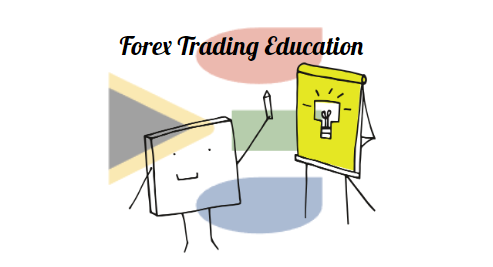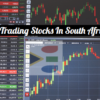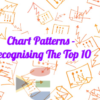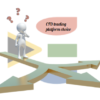Forex trading education is important for anyone who wants to become a successful forex trader and must not be overlooked.
There are a lot of different aspects to forex trading that you will want to know, as such, it can be difficult to know exactly where to start. This guide to forex trading education will point you in the right direction of what to pay attention to, and what to put on your reading list for later.

See our forex education tips, and learning guides.
Decide what type of forex trading education is right for you
The first step in getting started with forex trading is to decide what kind of forex education is right for you. There are a variety of ways to learn about trading, including online forex courses, books, and seminars; all the way through to having a one-to-one trading tutor, or trading educator to work with.
The best way to learn forex trading is to find a method that suits your learning style and schedule, and not be afraid to educate yourself in the forex market using multiple methods and sources should you choose. Whichever way you decide to learn forex, make sure that you are getting accurate and up-to-date information.
Ensure that your forex trading education gives you all you need, before you begin live trading
When you have decided on the forex education that is right for you, be sure to ask lots of questions and get all the information you need before beginning actual forex trading. A good forex trading education should include:
An overview of forex market mechanics;
This aspect of learning forex trading would involve an introduction to how the forex market works. Once you know how something works, and why it works the way it does, it becomes easier for you to identify how you should operate inside that particular ecosystem. You would be taught about different forex market participants, forex market order types, and forex market pricing.
A guide to using forex trading platforms and software;
This part of your forex education will give you a tour of the most popular forex trading platforms and software used by forex traders. You would learn how to place orders, manage your positions, and track your profit and loss. This is important so that you know how to use the tools at your disposal, and so that you are comfortable with the forex trading platform you will be using when you start live forex trading.
Information on forex market analysis and trading strategies
This is where you would learn about the different ways to analyse the forex market, so that you can identify opportunities to buy or sell currencies. You would also be introduced to different forex trading strategies, so that you can apply them in your own trading.
Technical trading
This part of forex trading education would involve learning about technical analysis, which is a method of forex market analysis that uses past price data to predict future price movements. You would learn how to read and interpret forex charts, and how to use different technical indicators to make trading decisions.
Money management advice;
This is an important aspect of forex trading education, as it will teach you how to manage your money properly in forex trading. Money management is about more than just making sure you don’t over-leverage yourself or risk too much capital on each trade. It’s also about knowing when to take profits and cut losses, so that you can preserve your capital and grow your account over time.
Guidance on how to open and close forex trades
In this part of your forex education, you would learn how to place forex trades using a forex trading platform. You would also learn about different order types, such as market orders, limit orders, and stop-loss orders. This is important so that you know how to enter and exit forex trades, and so that you can manage your risk properly.
Live trading simulations so you can practice what you have learned
Live trading simulations are a great way to practice forex trading without risking any real money. You would be able to test out different forex trading strategies and see how they work in real-time market conditions. This is a valuable way to learn forex trading, as it allows you to gain experience and confidence before live forex trading.
Start small when live forex trading
The above are just some of the things that you would expect to learn in a forex trading education program, with some of these topics being very large.
There is a lot to learn, but if you’re committed to becoming a successful forex trader, then it’s worth the effort. A good forex trading education will give you the foundation you need to trade successfully, so that you can make money in the forex market.
Once you feel confident that your forex education has given you the knowledge and skills required to trade successfully, it’s time to start live forex trading. But don’t rush in big!
Start small, with a mini forex account or a micro forex account, and trade with only a small portion of your overall capital. This will help you get used to the forex market without risking too much money and give you time to develop your understanding of live trading without overtrading.
Review your forex trading education regularly
Regular review of your forex education is essential, even after you have started live forex trading. As the forex market is constantly changing, your forex education needs to be kept up-to-date so that you can adapt your trading strategies accordingly.
Reviewing your forex education also allows you to monitor your progress and ensure that you are on track to achieving your forex trading goals.







